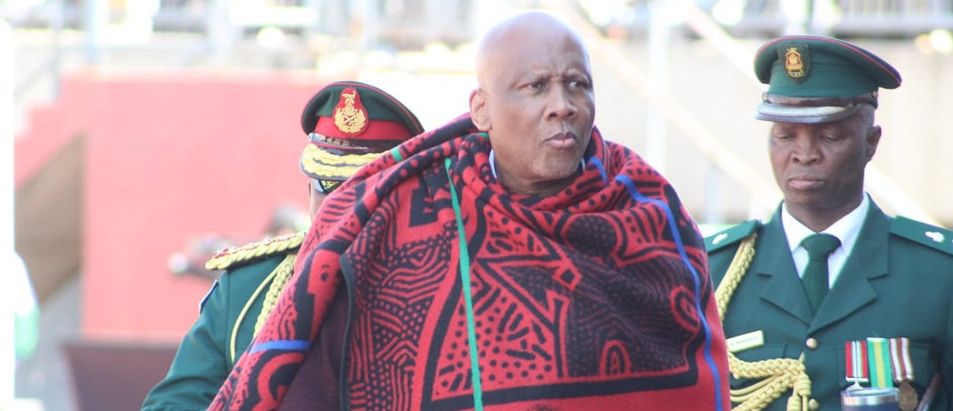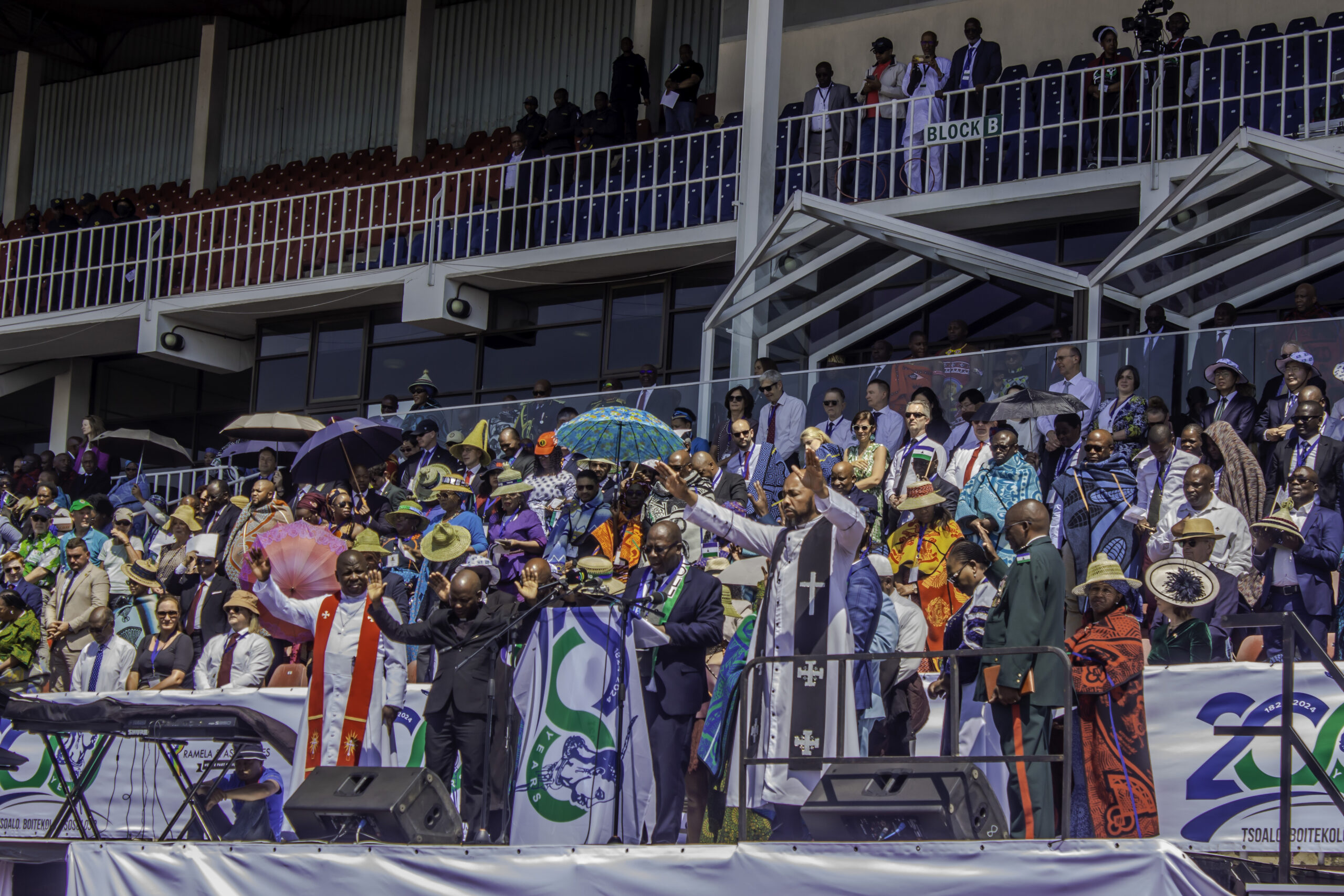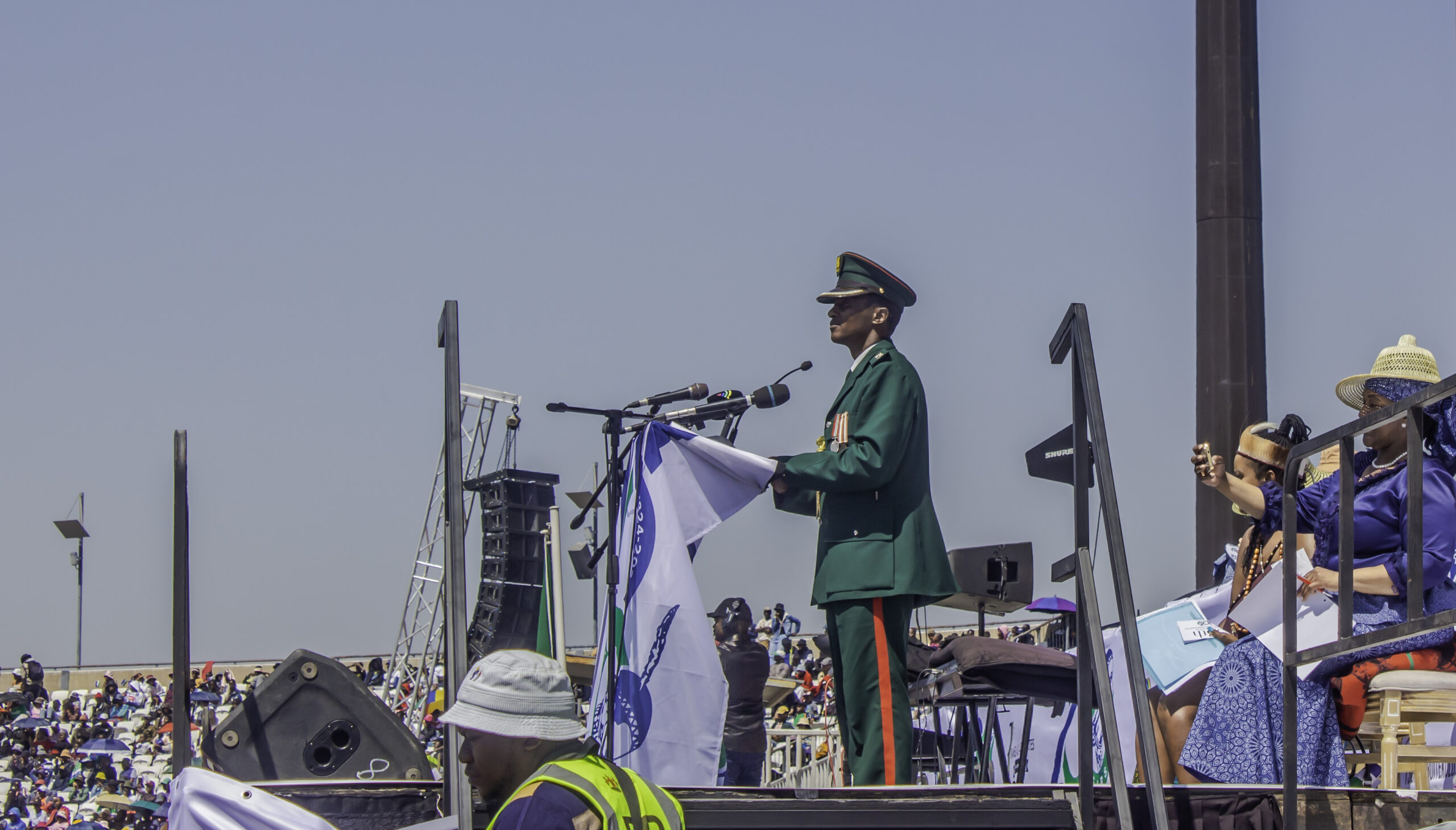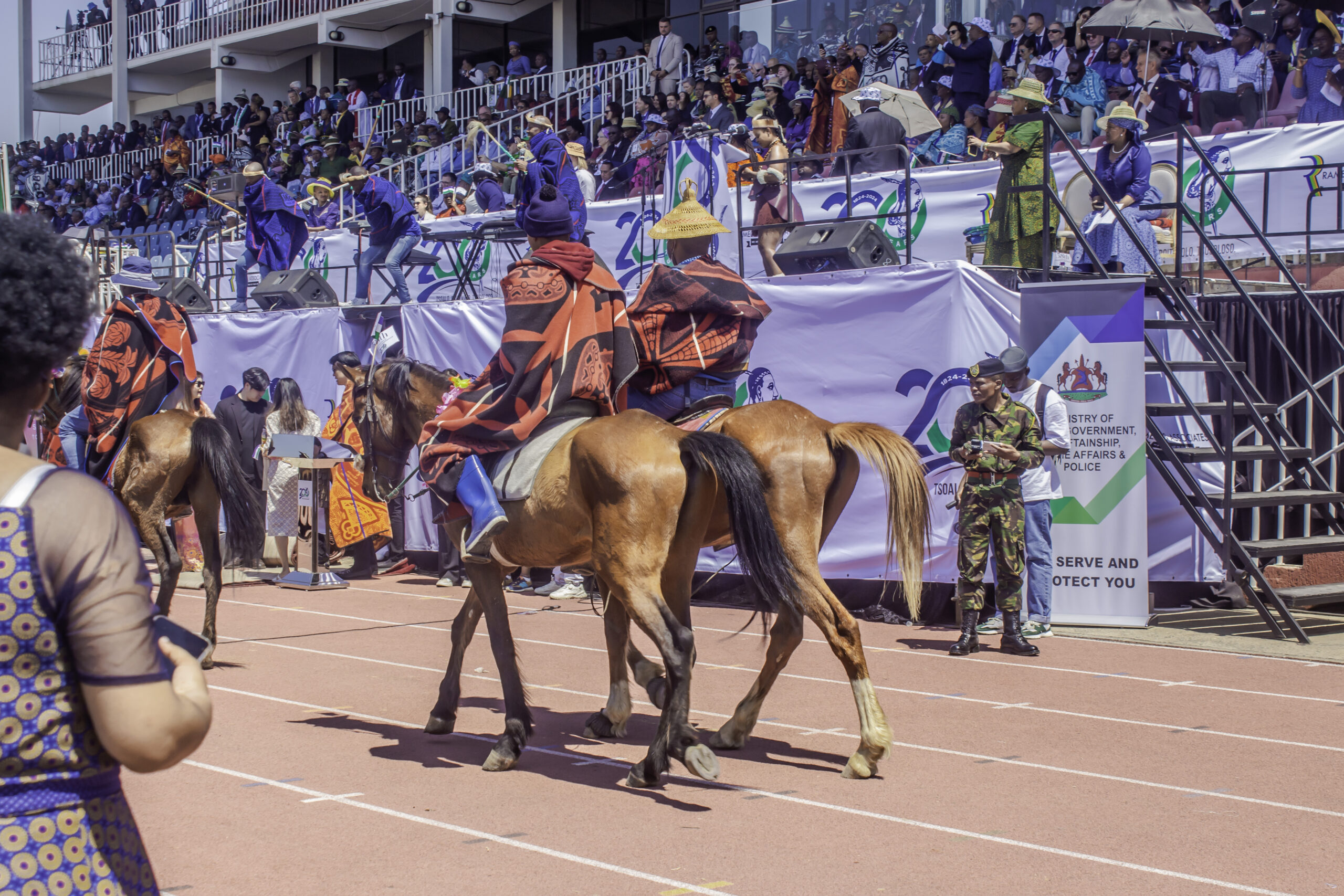- A nation at a crossroads in the pursuit of reform
Ntsoaki Motaung
His Majesty King Letsie III delivered a sobering message during the Bicentenary and 58th Independence Day celebrations at Setsoto Stadium in Maseru, asserting that the beauty of Lesotho’s laws means nothing if the country’s leaders remain mired in outdated, harmful practices.
In his address, the King reiterated sentiments he expressed years ago, stressing that the ongoing comprehensive national reforms, which have stalled multiple times, are not sufficient to address the country’s challenges.
“It is crucial to repeat these words, especially now as we embark on implementing the public’s views. The people do not want to be disappointed,” he stated.
Drawing inspiration from the nation’s founding father, Morena Moshoeshoe I, the King urged the Basotho to cultivate selflessness and prioritise the public’s interests for the sake of harmony.
He indicated that Morena Moshoeshoe I was selfless, which allowed him to unite people from various tribes to form the nation of Basotho in 1824.
The King identified pressing challenges such as hunger, poverty, unemployment, gender-based violence, and killings, asserting that these could be overcome if the nation is guided by truth and justice.
He expressed pride in the progress of national reforms, which have been shaped by public input, stating: “Parliament has begun the journey of implementing the public’s views. Everyone hopes that our representatives will complete this important work.”
The reforms, meant to usher in a new era of stability in the country, are the result of years of discussions among political parties, civil society, and other role players, mediated by the Southern African Development Community (SADC).
The backdrop of political turmoil adds weight to the King’s remarks.
In 2022, after the previous parliament failed to pass the 10th Amendment to the Constitution Bill 2022, commonly known as the Omnibus Bill, the Council of State advised then-Prime Minister Dr. Moeketsi Majoro to declare a state of emergency due to pressure from various stakeholders.
This state of emergency was one of two conditions that allowed a dissolved parliament to be recalled.
The Omnibus Bill aimed to amend crucial provisions regarding political parties, floor-crossing in parliament, the appointment of senior officials, and the role of the prime minister.
In declaring the state of emergency, Majoro highlighted that the failure to pass the bill would lead to unchecked politicisation of the public service, including security agencies, and create loopholes in the constitution.
He warned that these issues were undermining political stability, justice, and peace in the country.
“Unless the stated undesirable condition is addressed, it is likely to escalate beyond control, further threatening the peace, safety, and stability of the Basotho nation,” Majoro stated.
Following the declaration, His Majesty King Letsie III recalled parliament to pass the Omnibus Bill and the National Assembly Electoral Act Amendment Bill 2022.
Both bills, along with several others, were subsequently passed. However, on September 12, 2022, the High Court, sitting as the Constitutional Court, ruled that the state of emergency and the reconvening of parliament were null and void, rendering all laws passed by the recalled parliament also null and void.
Chief Justice Sakoane Sakoane, along with Justices Tšeliso Monapathi and Mafelile Ralebese, presided over the case.
Majoro and Attorney General Advocate Rapelang Motsieloa appealed the ruling, but the Court of Appeal dismissed their appeal on September 19, 2022, with costs.
As the national assembly elections approached on October 7, 2022, political parties vowed to ensure that the reform process would continue if they were elected.
During his inauguration on October 28, 2022, Matekane emphasised the urgency of expediting ongoing national reforms, thanking South Africa’s President Cyril Ramaphosa and Justice Dikgang Moseneke for their efforts in leading the national dialogue and reform agenda.
“I promise to expedite the successful completion of the national agenda on our journey towards the Lesotho we want,” he affirmed.
In August 2023, when the government attempted to revive the Omnibus Bill to its previous stage before parliament’s dissolution in 2022, local activists quickly challenged this in the High Court, arguing that resuscitating bills to the stage they had reached was unconstitutional.
Ultimately, the High Court ruled in favour of parliament’s authority to regulate its procedures.
However, this decision was appealed, and the Appeal Court sided with the activists, stating that parliament could not resurrect dead bills.
As a result, the Omnibus Bill was divided into three separate bills: the 10th Amendment to the Constitution Bill, which requires a simple majority to pass; the 11th Amendment to the Constitution Bill, which requires a two-thirds majority; and the 12th Amendment to the Constitution Bill, which will require a referendum to pass and is yet to be tabled in parliament.
Also speaking at the Setsoto Stadium during the celebrations, Prime Minister Ntsokoane Matekane reaffirmed the government’s commitment to pursuing the reform agenda, believing it is the only path to provide Basotho with the Lesotho they desire.
“We have made significant progress on the reforms. The first part of the three components of the constitutional amendment, the 10th amendment regarding the simple majority amendments—has been passed by the National Assembly. Given our history, this is a huge milestone,” Matekane declared.
The Prime Minister indicated that once Parliament resumes, the Senate will address the 10th amendment, while the National Assembly will deliberate on the 11th and 12th amendments with a collective leadership approach.
Despite claims of significant progress on the reform agenda, the reality on the ground tells a different story.
Matekane’s assurance that the first part of the constitutional amendment has been passed by the National Assembly is overshadowed by the bitter truth that the country is still mired in crisis.
The Prime Minister’s optimism contrasts sharply with the frustration felt by ordinary Basotho, who are left grappling with the repercussions of politicians more focused on political maneuvering than tangible solutions.
Calls for a complete overhaul of Lesotho’s constitution are growing louder as disillusioned citizens demand meaningful reforms to address their pressing needs.
However, the government remains stubbornly attached to a piecemeal approach, seemingly prioritising political convenience over the urgent cries for change.
This half-hearted strategy is not only inadequate but is also likely to face legal challenges in court, which could ultimately render any progress meaningless.
Summary
- The reforms, meant to usher in a new era of stability in the country, are the result of years of discussions among political parties, civil society, and other role players, mediated by the Southern African Development Community (SADC).
- In declaring the state of emergency, Majoro highlighted that the failure to pass the bill would lead to unchecked politicisation of the public service, including security agencies, and create loopholes in the constitution.
- On September 12, 2022, the High Court, sitting as the Constitutional Court, ruled that the state of emergency and the reconvening of parliament were null and void, rendering all laws passed by the recalled parliament also null and void.

Your Trusted Source for News and Insights in Lesotho!
At Newsday Media, we are passionate about delivering accurate, timely, and engaging news and multimedia content to our diverse audience. Founded with the vision of revolutionizing the media landscape in Lesotho, we have grown into a leading hybrid media company that blends traditional journalism with innovative digital platforms.












